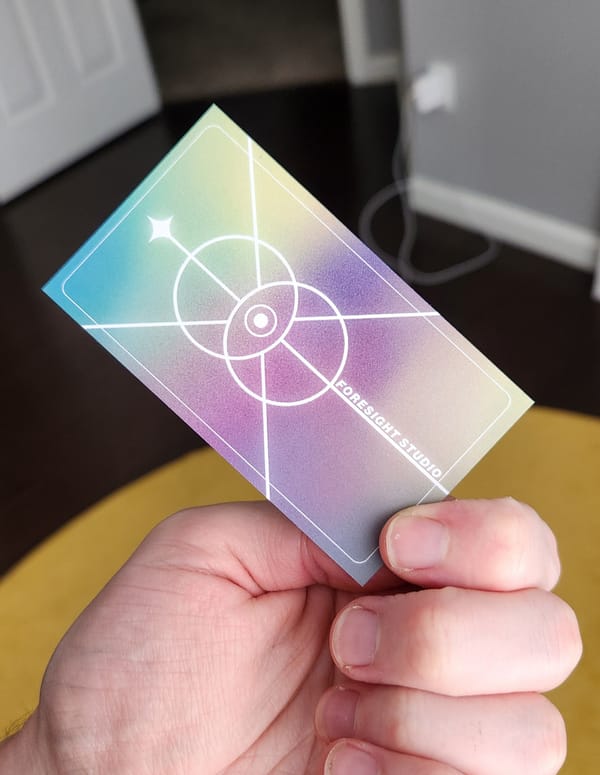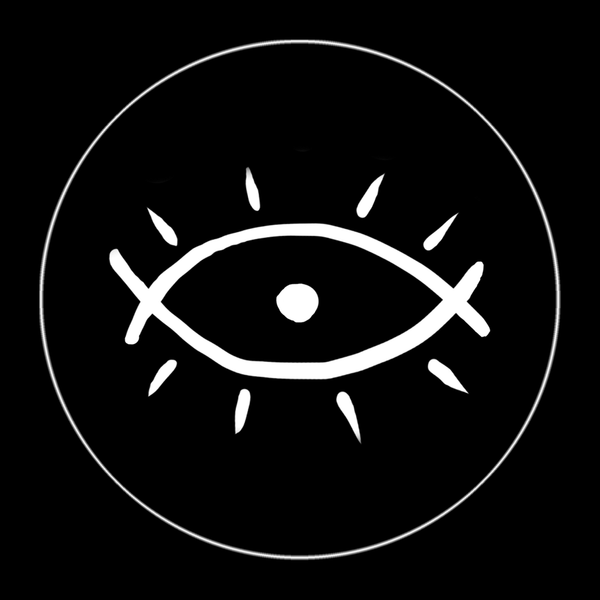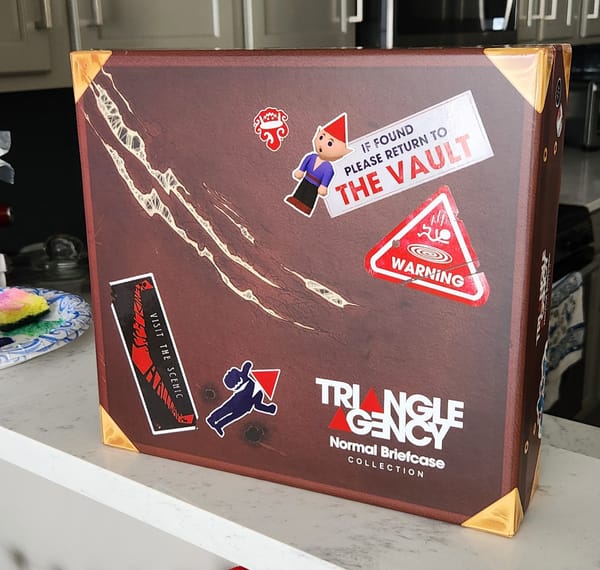Level down
On character advancement, the wellness industry, and my next game
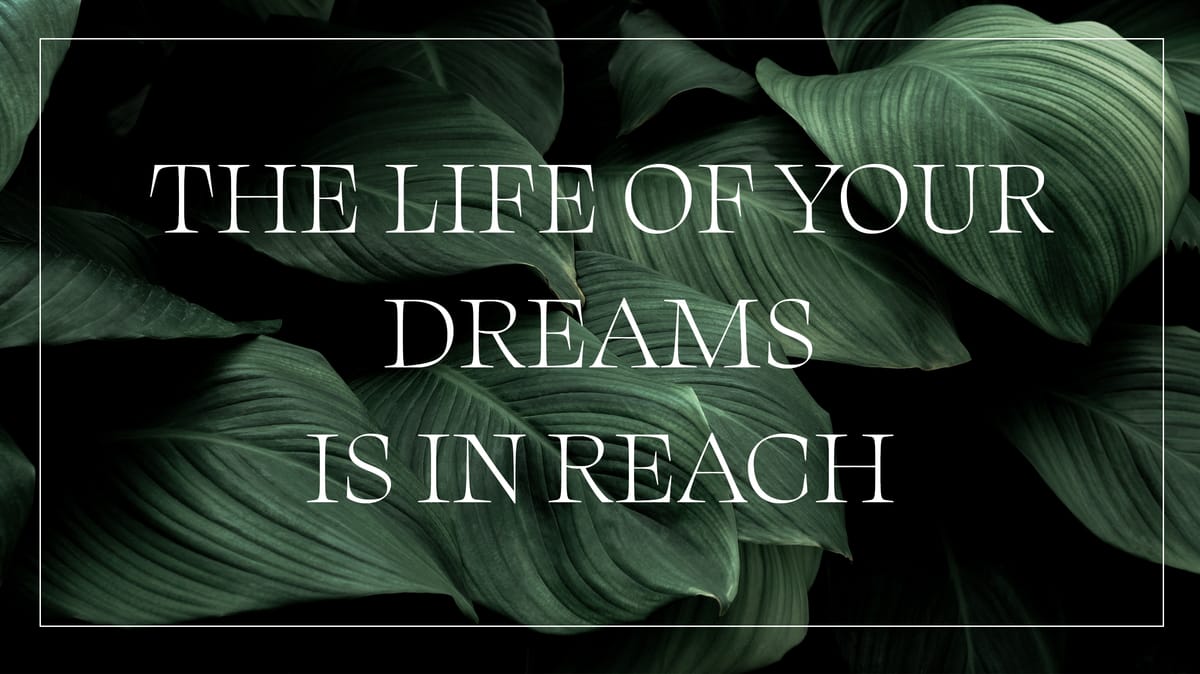
Before I dive in, just want to let you know that The Cross Stitch is now available for purchase at L.F. OSR and Exalted Funeral! Happy holidays!!
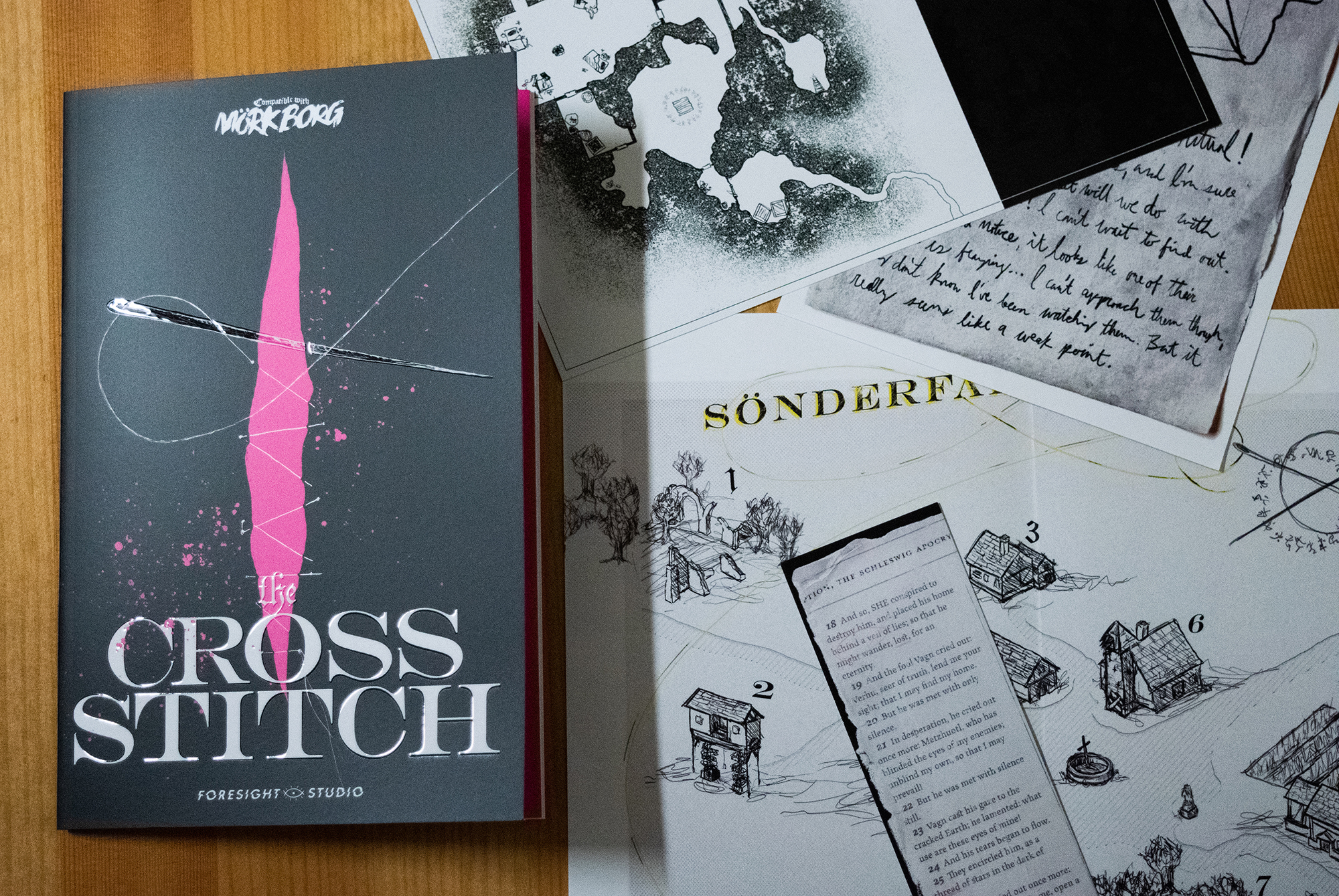
You can stay up to date on what I’m working on (& come chat about games, design, and life) at the Foresight Studio Discord server. You can also find me on Mastodon or Twitter (as long as it lasts). Ok, now let’s get started.
To the victor go the spoils
Think about the last TTRPG you played. Did it involve acquiring resources, items, experience, or currency? Did you use those resources to upgrade your character or your team, making them stronger, better-equipped to surmount bigger challenges in pursuit of more resources, items, experience, or currency?
Probably, the answer is yes. (If not, let me know what you were playing, I'm curious.) It’s kind of a baseline assumption in the genre. But why?
Recently, I’ve been stuck on the idea of reward in games. In a lot of ways, RPGs model bits and pieces of how we live our lives: how we explore new places, meet new people, deal with difficulty, grow and change. A major source of reward in RPGs comes from self-improvement. We get new skills and items through time, challenge, and risk.1 Tons of games are built on the satisfaction of accumulating stuff to gain more power in order to accumulate more stuff to gain more power, rinse and repeat ad infinitum.
And generally, this works! Everyone wants to unlock the shiny new skill that will give their character new ways to approach challenges down the line. I always wonder, though—is the fun part in accumulating power, or in finding new ways to approach a challenge? The two are so tightly connected that I don’t think most games (or players) make the distinction.2 We end up with the idea that to have more fun, you need more power.
So, we optimize.
Building character
I’ve done my fair share of checking tier lists and researching builds for characters both digital and tabletop. Games that reward players via accumulation of power tend to severely limit the ways you can approach problems at the outset, gradually doling out new possibilities based on how much investment you put in. But if you want access to as many options as possible as early as possible, well, that requires optimization.3
It’s an appealing model for actual life. You start with not much money and not many skills. If you optimize yourself, you can “level up” in your career, your relationships, your place in the world. Entire industries stand on this foundation, most prominently fashion and fitness, but also food, cosmetics, technology, tourism. Nearly anyone who’s selling something is trying to sell you a possible version of yourself, the you you would be if you wore those shoes, took that trip, drank that smoothie, read that book.
It’s a shitty model, though, because unlike games, life has no externally-defined “best.” Self-improvement is nonlinear, and to measure it by accumulation of capital (literal or social) feels to me like it misses the point and reinforces unfair societal systems. In my view, growth happens through new understanding, incorporation of different perspectives, discovering a version of the world you didn’t know existed. Maybe it’s harder to believably model, but I think it’s entirely possible.4 It just requires throwing that impulse to optimize out the window.
Or not. After all, there’s a trillion-dollar industry that will happily sell you this more introspective flavor of self-improvement, ready to get you on the fast track to your best self.
You could be better
The wellness industry is an enormous contradiction. It’s extremely personal, but is delivered through one-size-fits-all workbooks and anodyne sayings. It preaches minimalism, but peddles crystals and tinctures without evidence that they do anything. It purports to help people accept themselves as they are, but is predicated on the idea that they could, no, should be better.
Maybe the biggest contradiction of all is, despite the predatory nature of the industry, it really does help people. Life is confusing and difficult. If someone finds a story that brings them peace, even if it isn’t evidence-based, even if it’s expensive, that's a wonderful thing.5 So, I’m designing my next game to explore these contradictions. I’m trying to model character growth that happens through introspection, growth that resists optimization. I hope to build a framework that might even encourage you to make your character worse (and have fun doing it).
It helps that there’s a correspondence between the trappings of TTRPGs and the wellness industry—bullet journals and character sheets, personality types and PbtA playbooks.6
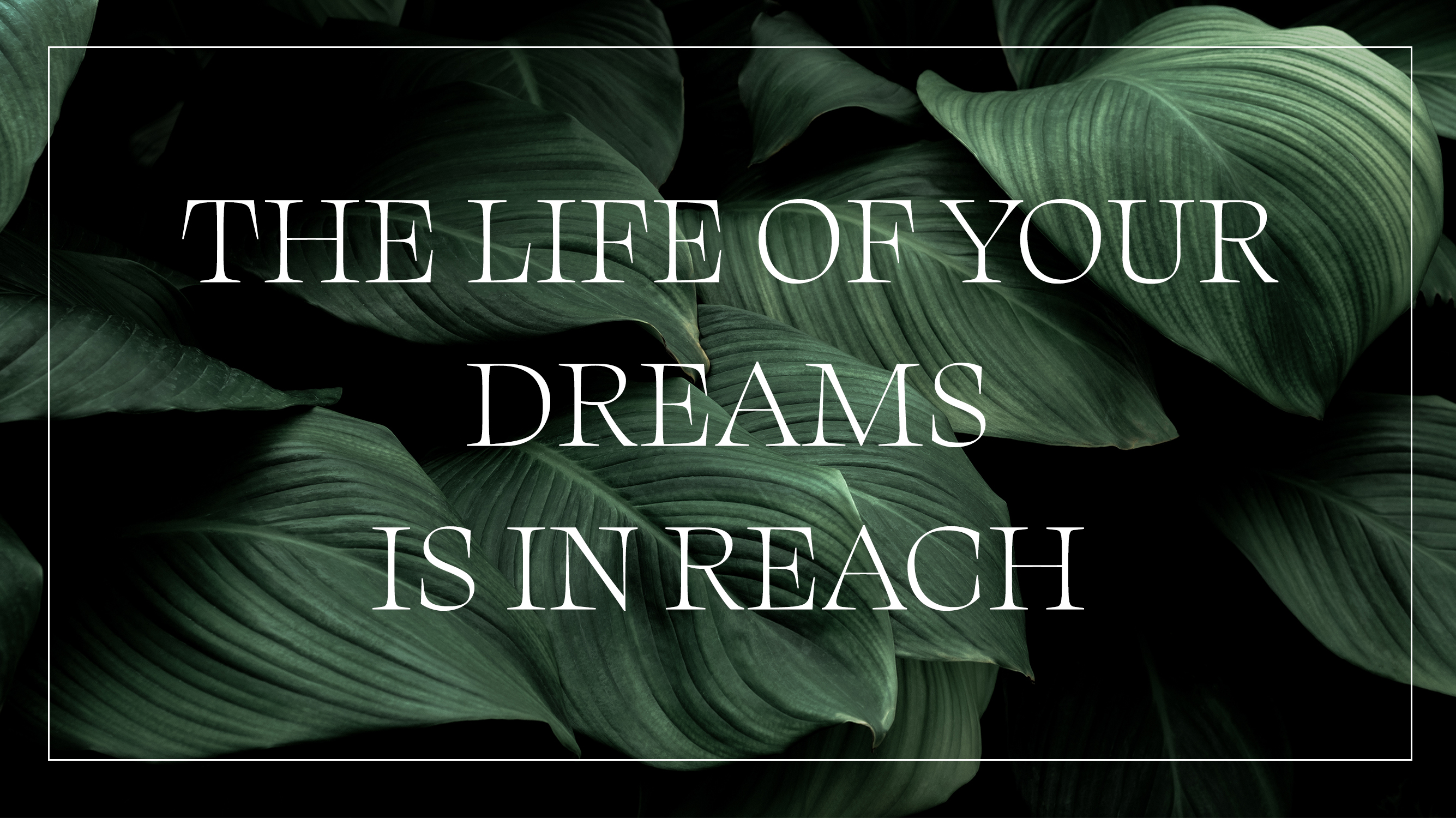
Which brings me to the game itself: Hillbrook Glen.
Welcome to Hillbrook Glen, an exclusive wellness retreat and medispa nestled in the lush woodland just up the mountainside. The Glen's unparalleled facilities and dedicated staff are ready and waiting to guide you on your path to a better self.
Join us for one of our transformative Workshops, designed to help you grow in mind, body, and spirit. We guarantee you will leave changed in ways beyond your imagination.
Available soon:
Manifest your Dreams
Follow your Bliss
Become your Best Self
Realize your Power
Hillbrook Glen: Become more.
There’s quite a bit of work left to do before the game is complete, but the first of The Glen’s core wellness workshops, Manifest your Dreams, will be out in time to make your New Year’s resolutions a reality. The other workshops will be released every month(ish) following, with the goal of updating and re-releasing them as a single pack in summer 2023. I can’t wait for you to explore all The Glen has to offer. Hope to see you there.
Looking to the future,
Ben // Foresight Studio
Thanks for reading! Let me know what you think here, on the Foresight Studio discord server, or wherever.
In the traditional TTRPG, these risks and challenges are often violent conflicts, which opens a whole other can of worms. There’s more to say about the proliferation of heroic, adversarial stories & the human tendency to reduce everyday problems to us vs. them, but that’s for someone else to tackle. ↩
It’s not an RPG, but one video game that does a remarkable job highlighting the joy in finding new approaches in the absence of power accumulation is Outer Wilds. It’s a brilliant, beautiful game in which you discover entirely new ways of seeing the world without a single point of experience or piece of currency. I’ll have a lot more to say about it in a future newsletter. In general though, I think TTRPGs have a lot of room to blur the RPG vs. action-adventure division in video games. ↩
Of course, there’s plenty of games that eschew that model, either entirely or in part. Fully narrative games (e.g. Dread), or those where your character is randomly generated and extremely fragile (looking at you, MÖRK BORG). Or games that aren’t even about individual characters at all (like The Quiet Year). ↩
One recent example is Yazeba’s Bed & Breakfast, which takes pre-defined characters and explores naturalistic ways they might mature, their perspectives changing through experience. ↩
Then we get into questions like, who is being exploited to make these things happen? Why do these industries primarily market toward women? What cultures are being appropriated so a spa in the Hamptons can charge $300 for a white lady to tell you about wabi-sabi or burn palo santo? Only a little bit relevant, but back in my science podcasting days I worked on an episode exploring the feminist history of homeopathy and how it transformed into the predator it is today. Check it out if you’re interested. ↩
Probably more to say about the impulse to categorize, place people in identity groups by traits etc., idk. ↩


